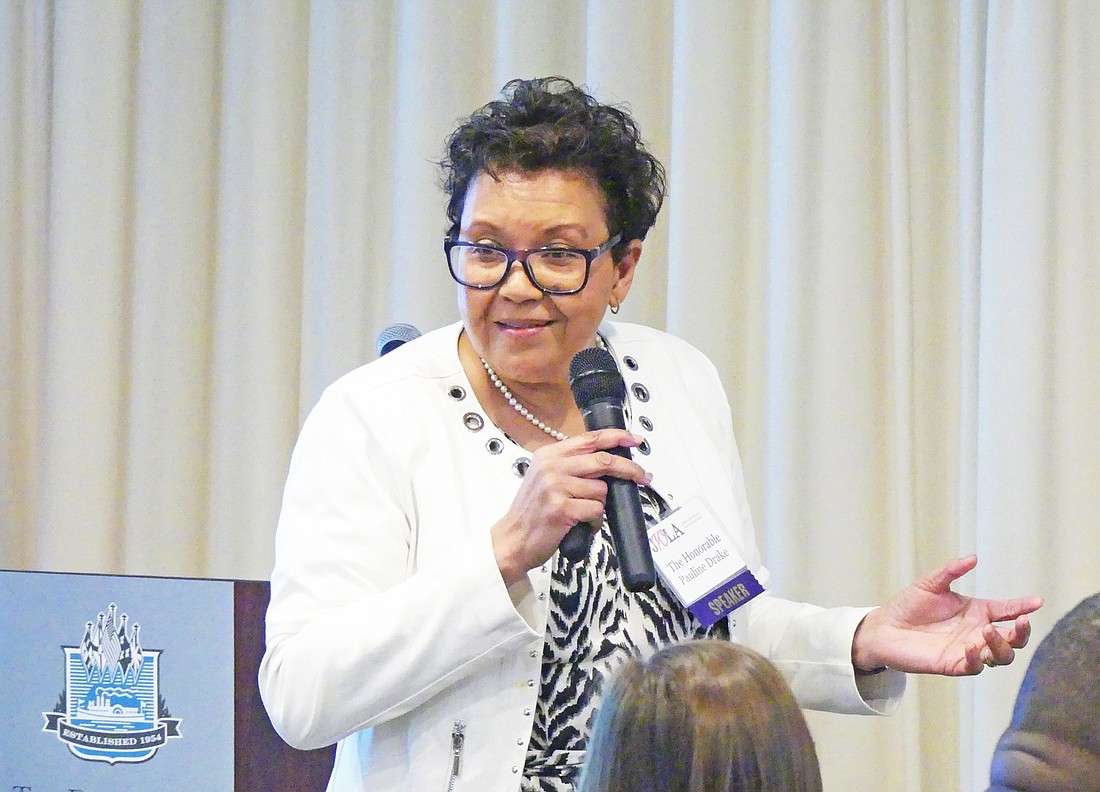
When members and guests arrived at The River Club Feb. 13 for the Jacksonville Women Lawyers Association meeting, each found an apple at their place setting.
It wasn’t because the keynote speaker, Duval County Judge Pauline Drake, was a teacher before she went to law school. It was because Drake used the apples to illustrate the theme of her presentation, “Intersectionality: Exploring the double burden of racial and gender bias in the legal profession.”
Drake asked a few people to describe their apple, and each described the shape and color.
That’s the point, Drake said: Only so much can be known by evaluating the apple by its appearance alone, and it’s what’s inside that counts.
People, too, can be evaluated merely by appearance and, “It’s like when you walk into a room, each has different experiences,” Drake said.
She then moderated a panel discussion of gender and racial bias in the legal profession, expressed by five black women lawyers:
Assistant State Attorney LaTesha Campbell; Amber Donley, a sole practitioner; Courtney Gilchrest, an associate attorney with Farah & Farah; Arden Joseph, senior corporate counsel with Deutsche Bank; and Latoya Willams Shelton, a sole practitioner and president of the D.W. Perkins Bar Association.
Though they practice in different fields and professional environments, the panel expressed similar experiences, such as being underestimated and opposing counsel not immediately recognizing their role they walked into a hearing or courtroom.
“My experience is people don't think I’m the attorney,” Joseph said.
“I’ve been mistaken for the court reporter. A judge one time told me to hush and opposing counsel called me ‘girl,’ ” Shelton said.
“Sometimes, opposing counsel don’t assume I’m a fierce advocate,” Campbell said.
Donley, a past president of the Perkins Bar, said she faced challenges recently when she opened her practice in Orange Park and purchased her office space.
“I haven’t met another African-American woman with her own practice in Clay County. I was told it was a good-old-boy network and I wouldn't be able to get clients. I’m fueled when people underestimate me. I can't be limited by other people’s expectations,” Donley said.
Drake said women have a great potential to network and should realize that it’s OK to have differences.
“But what’s not OK is to ignore the similarities. It’s the similarities that bring us together. We all went to law school. We all graduated from law school. We all passed the Bar,” she said.
“Surround yourself with people who will shape you and mold you,” Gilchrest said.
The value of having a mentor also was discussed.
“You need to have somebody you can talk to. They may see a different perspective,” Shelton said.
“And be a mentor. It goes both ways. Take a young attorney under your wing – and your mentor or your mentee doesn't have to look like you,” Campbell said.